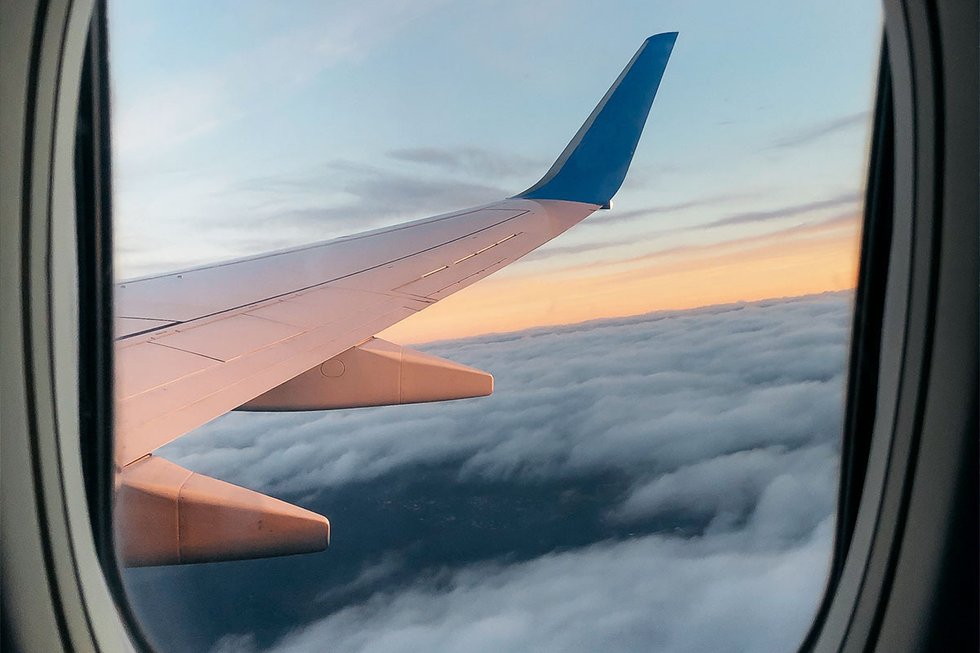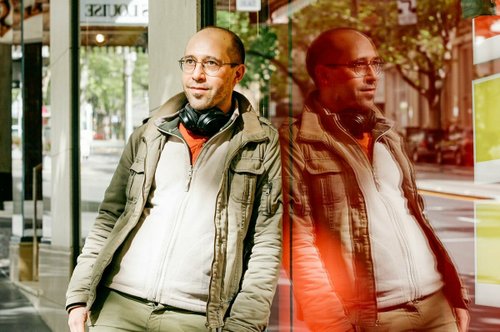Business travel: the view from the ground
Mar 10, 2021
6 mins


Journalist
The world of business travel has changed dramatically in the past year. Few meetings require anyone to turn up in person and the days of settling into a nice comfy seat with your laptop to get some work done on a long-haul flight seem like a dream. Airlines are hopeful that business travelers will take to the skies again soon, but is that realistic?
As a marketing executive at a multinational tech company, Niamh Donoghue used to fly from her base in London to San Francisco five times a year. It was a good way to catch up with the team and she made a habit of extending her time in the US. “I would always use it as an opportunity to go farther afield too if I could, sticking another trip on the end,” she said, adding that she took in New Orleans, Puerto Rico, and the Burning Man festival in Nevada. That all stopped with the pandemic. “I used to live in San Francisco so I miss seeing my friends . . . and being ‘in person’ with the team,” she said. “I miss the excitement of going to a new place and experiencing a different lifestyle for a while. I miss the diversity of experience and the people you meet.” Now all her work and meetings for Soundboard, a platform connecting people through events, workshops, and mentorship, are conducted online.
Donoghue is not the only one who has been grounded. Around the world, millions of business travelers have been turning to Zoom, Google Hangouts, Microsoft Teams, and other technology to stay in touch since the world began to shut down. The true financial impact of the coronavirus on business travel began in the second quarter of 2020, according to the Global Business Travel Association (GBTA). The industry enjoyed a relatively strong first quarter, but global spending on business travel is expected to fall from $1.4 trillion (£1.01 trillion) in 2019 to $694 billion in 2020, a tumble of 52%.
This is the sharpest drop in traffic in aviation history, according to the International Air Transport Association (IATA). “Last year was a catastrophe. There is no other way to describe it,”said Alexandre de Juniac, the IATA director general and chief executive, in a statement. The pandemic has affected business travel more than the September 11 attacks and the 2008 financial crisis.
The year before, however, was a golden one, according to Nicola Cox, the managing director of Midas Travel in London, which specializes in corporate travel. “In 2019, business travel enjoyed a record year with companies expanding their global footprints and growing into new markets,” said Cox. “The pandemic had an instant impact on travel with governments seeking to best contain the virus. With constantly changing parameters including quarantines, red list countries, testing, and more recently hotel quarantine, traveling, in general, has become more complex, in the short term at least.” Reduced business travel has continued throughout this time, as it is a necessary part of some organizations, but it has required more paperwork and management, she said.
When the business class took off
Traveling for business is older than Marco Polo and his treks along the old Silk Road, but it is an Australian airline that claims to have invented business class as we know it. In 1979, Qantas introduced Business Class, which offered wider seats than the economy and cost 15% more. Travelers could also avail of priority boarding, better food, and free drinks. The concept of giving perks to premium customers was not new: separating First Class passengers from those in Economy was well established. Nor was it the first airline to offer special enticements to busy business travelers. Japan Airlines, KLM, Pan Am, Air France, and British Airways all offered special privileges to those paying more for their seats. Thai Airlines even aimed their ads specifically at business people. Qantas, however, was the first to bring it all together in a neat package.
The concept took off around the world. Since the airline was launched in 1984, Virgin has offered Upper Class, which it claims is a first-class service for a business class price. British Airways introduced Club World, its long-haul business class service, and Club Europe, for short-haul routes, in 1988. On long-haul routes, everything is done to help passengers to focus on their work, including the latest in-flight tech in dedicated cabins with increasingly comfortable beds.
How travelers feel
The current reduced offering just isn’t as enjoyable for business travelers, according to Michelle Tanaka Chingoka, a London-based blogger and tour organizer with Tanaka Travels, who visited Positano in Italy in September 2020. “It wasn’t the first-class type experience I usually enjoy: from limited use of business lounges to duty-free being closed and only having Boots pharmacy available,” she said. Another lockdown meant that her plans to take a group to Cuba had to be canceled. “It was heart-wrenching to cancel our trip. After many months of planning, the excitement had built up at the idea of immersing ourselves in the Cuban culture—and it was all just ripped apart overnight.”
Chingoka is not the only one who is keen to get back in the skies. Before the pandemic hit, Niki Webster took off every few months to work as a chef on retreats while seeking inspiration in such places as India, Indonesia, and Thailand for her cookbooks. “I miss so many things but mostly the food inspiration. So many of my recipes are inspired by my travels around the world and exploring different cuisines,” said Webster, the author of Rebel Recipes. “The best part was the adventure of new places, people, challenges and experience . . . and knowing I’m going to learn new things—and the food.”
It wasn’t always easy. “People think traveling for business is all fun and glamorous—it definitely isn’t. For example, working on retreats involves incredibly long and tiring days. But they are worth it,” she said. While Webster has no trips planned, she is itching to get going again to new destinations, such as Mexico and Ethiopia. “I’m seeing what happens in the next few months,” she said.
Not everyone wants to get back in the air. Alan Spurgeon of Hedgehog Digital, a marketing agency with offices in Bedford, Cornwall, and Sao Paulo, Brazil, used to spend a lot of time traveling within the UK and overseas. “Since Covid struck, I have not set foot outside Cornwall,” he said. “I miss traveling and meeting people face-to-face. Still, now that it has become more acceptable to conduct business and manage staff remotely, I’m totally in favor of minimizing business travel. Not only do I find myself with more time available to dedicate to the business, but travel costs have all but disappeared. So given a choice, I’m all for the end of business travel when it can be conducted remotely.”
Pent-up demand
There’s a lot of demand building for business travel, according to Cox of Midas Travel. “Companies have been forced to adapt and manage with work-from-home set-ups. But for many, this is not a long-term solution,” she said. “Online alternatives existed way before the pandemic and, while there has been a huge increase in adoption, it has not been through choice, it’s been through necessity.”
There are still plenty of good reasons for getting on an aircraft to meet clients or colleagues, she said. “The reasons for travel remain the same. Whether it’s for relationship building, internal engagement, sales or launching into new markets, some activities just aren’t as effective when managed remotely,” said Cox. “Many have reached a point of ‘Zoom fatigue’ where they’re just not getting what they need out of online calls anymore. And companies are keen not to lose any more time here.”
The future of business travel
Some don’t expect business travel ever to return to 2019 levels. Microsoft founder Bill Gates said on CNBC last November that he expects more than 50% of business travel not to return. Not everyone agrees with that. Business travel is down but not out, according to a report from Citibank on the future of the industry. Recovery will be slow, it will vary from country to country and may be reversed if infections increase again, it says. Coming into 2020, business travel had grown for 10 consecutive years, with an average growth rate of 5.1% per year, according to the GBTA, which expects a full recovery by 2025.
Work is being done to get back to some semblance of normality. The new IATA Travel Pass—a “digital passport” to verify a pre-travel test or vaccination meets the requirements of your destination country—is expected to be ready within weeks.
International Airlines Group, which owns British Airways, Aer Lingus, Iberia, and Vueling, has reported a loss of €7.4 billion for 2020, though BA has seen a surge in bookings since the UK introduced its plan to restart international travel in May as part of its roadmap.
Cox and de Juniac expect to see advanced technology providing answers. “There’ll be more digital solutions to reduce the need for human interaction, such as online check-ins, food and beverage orders,” said Cox. “Whichever route we go down, there will be a requirement for documentation and proof that travelers are safe to enter foreign countries.”
The hope is that cutting down business travel will be beneficial for society at large. The mass grounding of flights during the peak of the 2020 coronavirus pandemic saw carbon dioxide emissions from aviation drop dramatically, according to the Global Carbon Project. A reduction of 75% was seen during the peak of Covid-19 lockdowns. However, aviation emissions “account for just under 3% of global emissions”, the researchers note. It still adds up. Spurgeon said, “My impact on the environment has improved significantly.” Every little bit helps particularly if this turns into a trend.
Photo: Welcome to the Jungle
Follow Welcome to the Jungle on Facebook, LinkedIn, and Instagram, and subscribe to our newsletter to get our latest articles every day!

More inspiration: The Covid crisis

Debate: Should we mandate vaccines in the workplace?
We asked two bioethicists to help us unpack the arguments on both sides and explain the ethical principles underpinning our public-health policy.
Mar 01, 2022

‘Don’t give up’: 262 days of working in lockdown in Melbourne
Melbourne just made the record for the most 'confined' city in the world. What's it like being a worker there? These professionals testify.
Nov 09, 2021

Surviving the pandemic without government support
UK workers who were excluded from government support tell us about their year without work or income.
Jun 16, 2021

How the pandemic is driving a virtual tech boom
As the pandemic has accelerated the rise of remote work, it has also advanced the development of virtual technology, shaping the future of work.
Jun 08, 2021

How Covid is destroying the careers of mothers
Among Covid-19's countless victims are the careers of women forced to make the choice of leaving their jobs to care for their children and families.
Apr 22, 2021
The newsletter that does the job
Want to keep up with the latest articles? Twice a week you can receive stories, jobs, and tips in your inbox.

Looking for your next job?
Over 200,000 people have found a job with Welcome to the Jungle.
Explore jobs